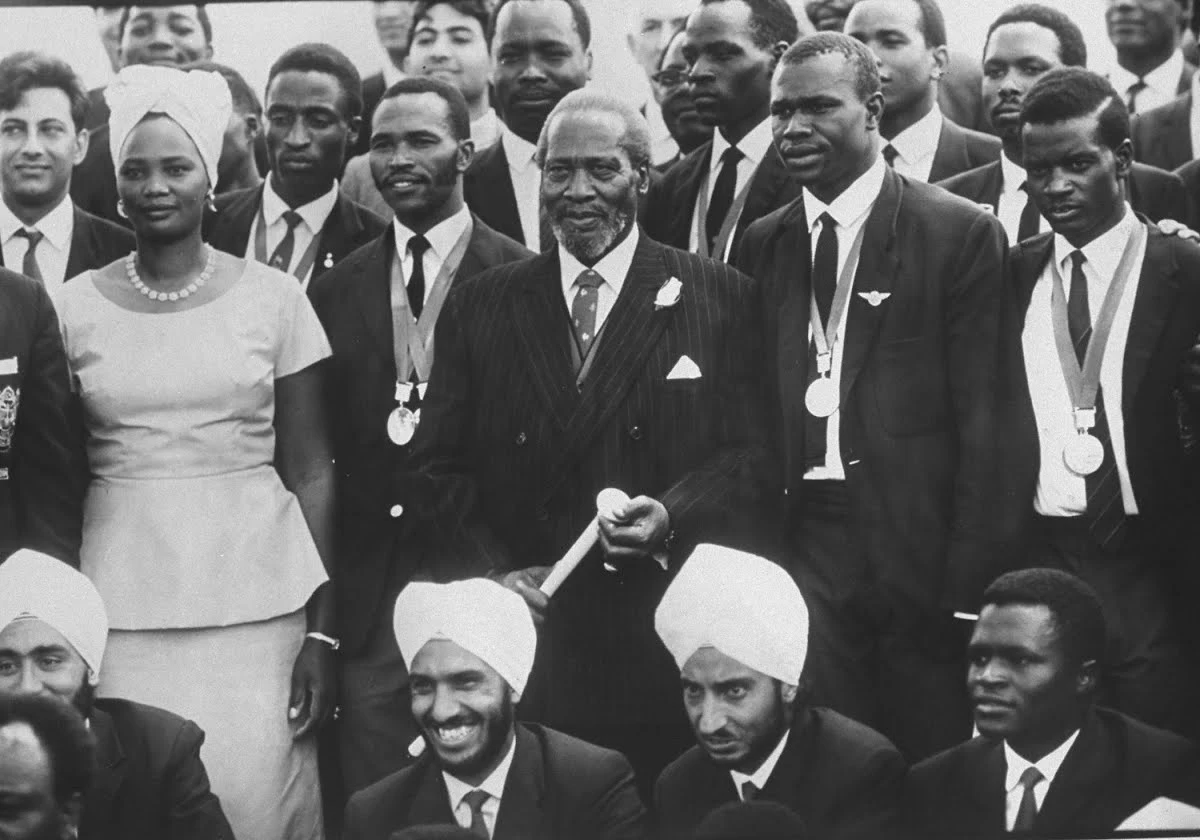Kenya has been and still is the hub of Pan-Africanism. However, we cannot dispel the weight that the politicians in the 1960s carried in Pan-Africanism.
Leaders such as Jomo Kenyatta, Oginga Odinga, Pio Gama Pinto, Tom Mboya, Mbiyu Koinange and Joseph Murumbi. These names have been instrumental in the stage of Pan Africanism to build it to where it is today.
The reason they had such a large impact on Pan-Africanism is that they had international influence. They could easily find international media coverage, their “statements were thoughts of other silent politicians”. These leaders lobbied for the formation of OAU and non-alignment membership. Their leadership style surpassed that of the Kenyan playground and into the African setting leaving an imprint.
When African countries gained independence, there were a few things that would have led to an alternate crisis past colonialism. The retaining of colonial maps or not, and the existence of alternative races in our countries. Many countries wanted to breach the colonial-drawn borders and take back what was theirs but that was a recipe for war. Somalia did try to claim the northern part of Kenya and has been for quite some time.

Kenya however, lobbied for a multi-racial state in theory. In November 1963, Mboya and Odinga challenged the backbenchers who proposed the limitation of citizenship attainment, business ownership and employment to black Africans. They challenged this by pointing out why they were okay attacking South Africa and the United States for racism but still think it, was ” morally right to discriminate against people based on their skin colour.” Leading a revolution of multi-racial governments in Africa.
Congo crisis. In 1961, Patrick Lumumba was murdered and the US backed that move. In 1964, pro-Lumumba communists backed the rebellion against the US and captured large areas as well as foreign hostages. Kenyatta was called by OAU in 1964 to mediate and lead peace negotiations in the Congo crisis. During these talks however, the US proved to be deceptive as they aided the Belgian paratroopers in rescuing the hostage and ended up killing Congolese people. This happened while negotiations were taking place.
Kenya’s Pan-Africanism in Africa
The EAC was later formed but started limping in 1971 and later collapsed on its 10th birthday. The limping was caused by different ideologies between Uganda, Tanzania and Kenya. This comes after Idi Amin took over office via a military coup against President Milton Obote. Kenya and Uganda rejected nationalizing foreign companies while Tanzania used socialist principles. Nyerere referred to Kenya as a neo-capitalist man-eat-man society. Kenyatta thought Idi Amin a ‘mad man’ when he started claiming parts of Kenya as his own.
Kenya took part in the Angola crisis and called out the two factions fighting by saying that it was an imperial game of divide and rule. They also aided in Namibia’s transition to a free state. This set the stage for Kenyan troops to be deployed in other countries; Namibia, Liberia, Sierra Leone, Somalia and Sudan.
In 2011, Kenya invaded Somalia to destabilize the Al-Shabaab bases. This shocked many people as it was the first time Kenya invaded another country. They are part of the African Union Transition Mission in Somalia alongside Uganda and other countries. This mission is the final peacekeeping mission targeted to end in December 2024 with the withdrawal of troops.
Kenya has made an impact on the rest of Africa in many ways. It was part of the international effort to create and form South Sudan as a country. Kenya played a role in putting an end to the 22-year-old Sudan Civil War by forming South Sudan. It has also played a role in the negotiations between factions in Somalia. Kenya is currently aiding in peace talks in DRC between the M23 and the current Congolese President.
For the last 60 years, Kenya has been very instrumental in the Pan-African movement. It has helped in major African crises and allowed for the continent to still remain stabilised. 60 years of post-colonialism and finding bearing as to how African countries can exist without Western influence.
Read Also: Exploring Madaraka Day
















